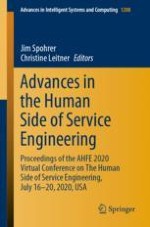2020 | OriginalPaper | Buchkapitel
Can Humans Learn from AI? A Fundamental Question in Knowledge Science in the AI Era
verfasst von : Youji Kohda
Erschienen in: Advances in the Human Side of Service Engineering
Aktivieren Sie unsere intelligente Suche, um passende Fachinhalte oder Patente zu finden.
Wählen Sie Textabschnitte aus um mit Künstlicher Intelligenz passenden Patente zu finden. powered by
Markieren Sie Textabschnitte, um KI-gestützt weitere passende Inhalte zu finden. powered by
